June 15, 2025 | 18:29 GMT +7
June 15, 2025 | 18:29 GMT +7
Hotline: 0913.378.918
June 15, 2025 | 18:29 GMT +7
Hotline: 0913.378.918
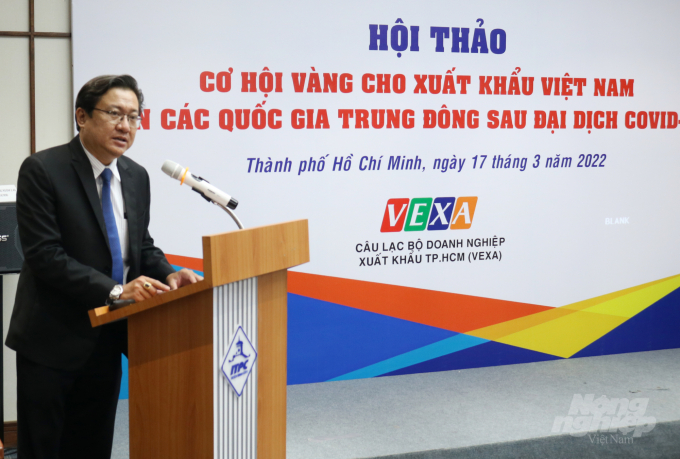
Mr. Nguyen Tuan, Deputy Director of ITPC.
At the seminar "Golden opportunity for Vietnamese exports to Middle Eastern countries after the Covid-19 pandemic" held by the Investment and Trade Promotion Center of Ho Chi Minh City (ITPC) on March 17, Nguyen Tuan, Deputy Director of ITPC, said that the Middle East (including 16 countries) with a large population of about 400 million people and high living standards was emerging as a potential exporter for Vietnamese enterprises.
Vietnam has trade relations with the Middle East region, focusing on the six member countries of the Gulf Cooperation Council (GCC). The six GCC member countries have implemented a Customs Union (CU) and agreed to apply a common import tariff with a tax rate of about 5 per cent applied throughout the region for most products from January 1. 2003.
According to Ambassador Extraordinary and Plenipotentiary of Vietnam in Kuwait Ngo Toan Thang, the barrier to trade in the GCC countries' markets is the requirement for certificates of standards, quality control, labels, etc., issued by the Standards and Metrology Organisation of the GCC (GSMO), Halal certificate for imported food and seafood products.
Thang said that opportunities for Vietnamese enterprises in the GCC market were open wide with many advantages.
“GCC block has large purchasing power, high solvency due to abundant financial resources. The structure of GCC's import-export products is quite suitable for Vietnam's strong export products and needs, and the GCC's import tax is quite low," Thang said.
The import demand of these countries was very large, from US$2-8 billion per year for items such as furniture, plastic products, cereals, textiles, footwear, rubber and rubber products, meat, milk and dairy products, vegetables.
“These are the key products of Vietnam. However, the proportion of these products of Vietnam in the import structure of Middle Eastern countries is still low, not commensurate with the potential of the two sides, "said Tuan.
Meanwhile, the agricultural sector of the Middle East is still underdeveloped due to harsh natural conditions. The country’s manufacturing industry is difficult to develop, so this area still has to import a lot of food and consumer goods.
Another advantage when exporting to the Middle East, is the import tax rate of only 0-5 per cent for goods imported from outside the bloc. Because of this, the Middle East has become a potential market for Vietnam, he said.
Tuan said that to Ho Chi Minh City, the Middle East was a potential market and the city had a lot of opportunities.
In recent years, Ho Chi Minh City's export turnover to Middle Eastern countries has increased steadily with items such as seafood, vegetables, fruits, coffee, pepper, textiles, computers and electronic components, phone components.
“Currently, Vietnamese enterprises in general and those in Ho Chi Minh City in particular still face many difficulties when accessing the Middle East market such as lack of information, barriers to logistics and international payments. Therefore, businesses need support from Vietnam's diplomatic agencies in the region, as well as trade and investment promotion agencies such as ITPC", Ngo Toan Thang said.
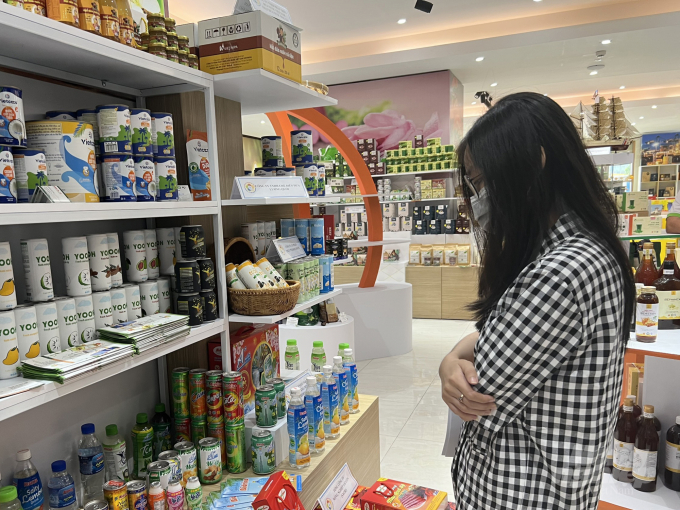
Products offered by Vietnamese enterprises.
Nguyen Thi Ngoc Hang, Marketing Director of Halal Certification Office - HCA Vietnam said that there were 57 Islamic countries being OIC member countries, 2.2 billion Muslims live in 112 countries around the world (accounting for 25 per cent of the world's population.
“This is a market with a special business culture and often requires Halal certification,” said Hang.
The benefits of Halal certification are extremely great, helping businesses to meet the requirements when exporting to Muslim countries and be trusted by Muslims to buy and use them without hesitation, she said.
Hang noted that when participating in the Halal certification programme, when preparing to register, businesses need to apply Halal in production, paying attention to choosing Halal materials. Agro-fishery companies need to pay special attention when producing Haram products as it will be very difficult in the Halal assessment process. Enterprises need to choose the products participating in the certification, the factory location and the certification programme in accordance with their needs.
During the Halal assessment, the evaluation agency will conduct the traceability of raw materials and all ingredients included in the production process, so it is important to note that businesses need to be very careful in this stage. After being certified, enterprises also need to pay attention when releasing new products, changing raw materials to ensure Halal integrity in the production process.
In addition, when certifying a product with a specific brand name, it is mandatory to conduct a site audit of all the factories that manufacture the product bearing the same brand name (including outsourcing units).
The product does not simulate the image of the breed, the product packaging does not have a pork image, related to the pig. Product name must not be related to other religion, not related to Haram.
There are separate requirements for companies that require Halal products but produce products related to banned substances (pork, wine, beer). For example, the line that was used to make products related to pork must be cleaned according to Islamic rites before proceeding with the production of Halal products.
The production line of pork products must be completely separate in terms of workshops, equipment and people from the Halal product line.
Enterprises must conduct training, develop and apply Halal standards before conducting the assessment (must have records and system of management documents).
Translated by Hien Anh

(VAN) Noting risks, report examines impacts of avian influenza, changing trade patterns since 2022, fish fraud, and shipping industry’s net-zero goals.

(VAN) Mr. Tran Quang Bao, General Director of the Forestry and Forest Protection Department, met and worked with the International Wood Products Association to promote cooperation in the field of timber trade.

(VAN) China's outbound shipments of rare earths in May jumped 23% on the month to their highest in a year, though Beijing's export curbs on some of the critical minerals halted some overseas sales.

(VAN) To sustain capital flow, administrative reform alone is not enough; what farmers truly need is an ecosystem where both government and businesses grow together in support.
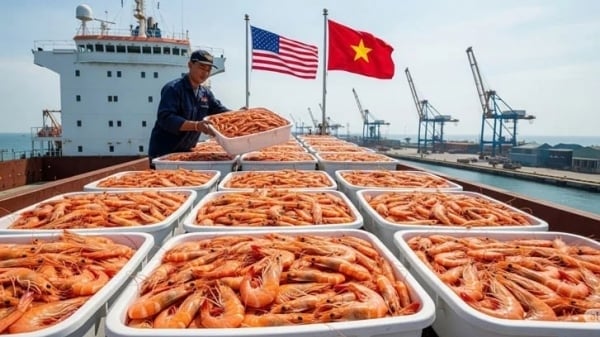
(VAN) Vietnam and the United States are proactively working together, each in their own way, to ensure that every container of agricultural goods carries not just products, but also long-term trust and value.
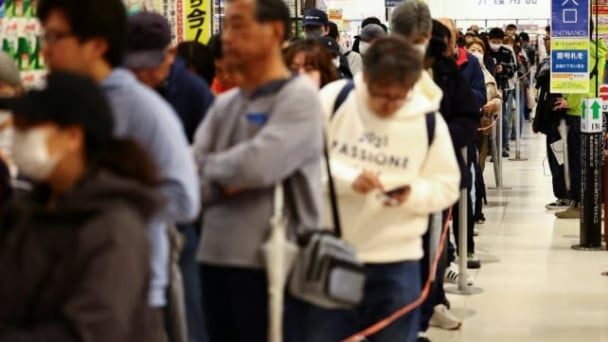
(VAN) Stores have started selling rice from the government’s stockpile to feed demand for the staple.
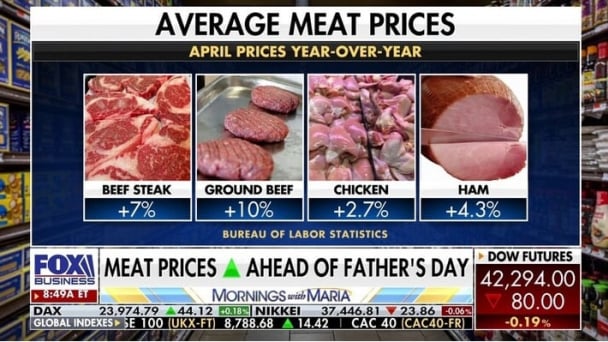
(VAN) Omaha Steaks CEO says rebuilding cattle herds will take about a year to ease price pressures.